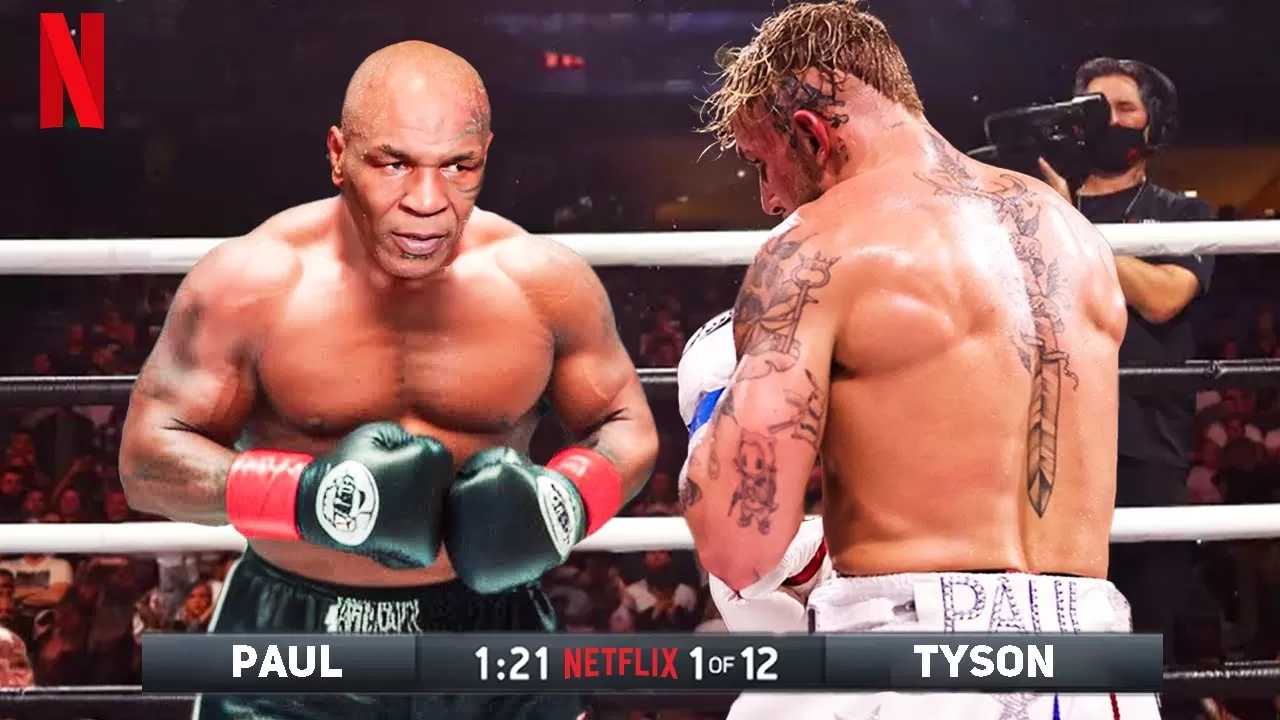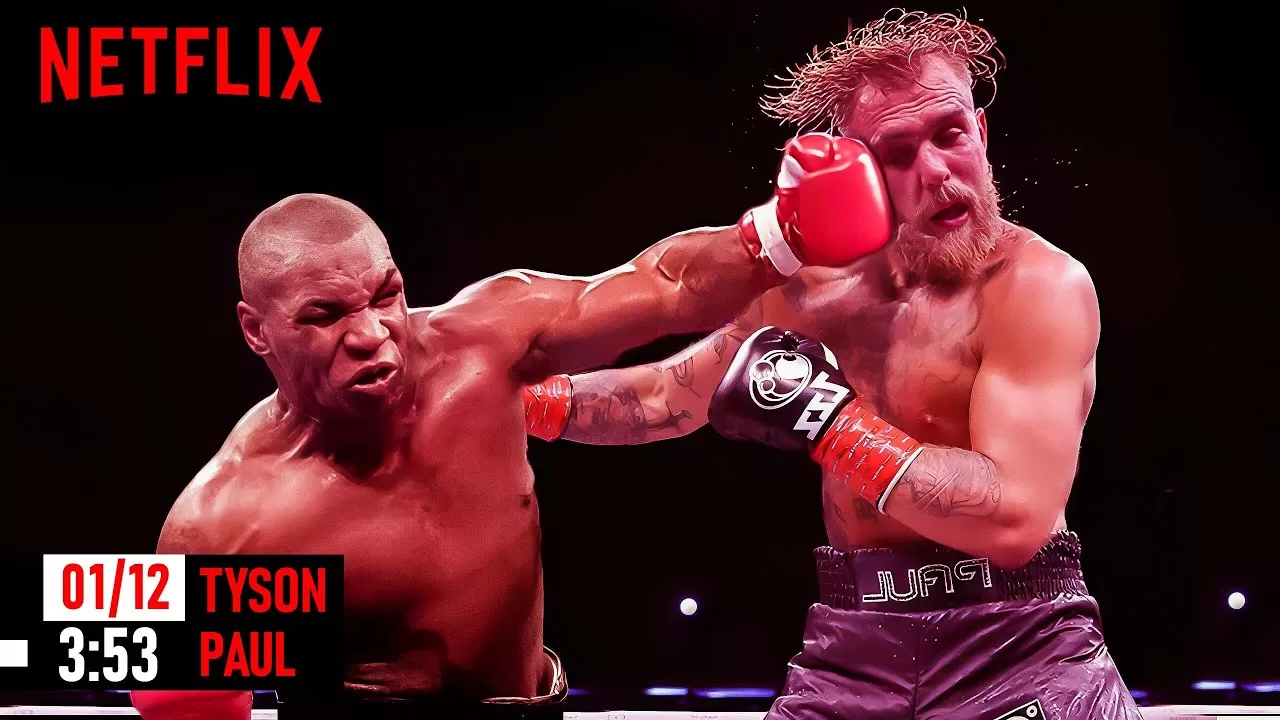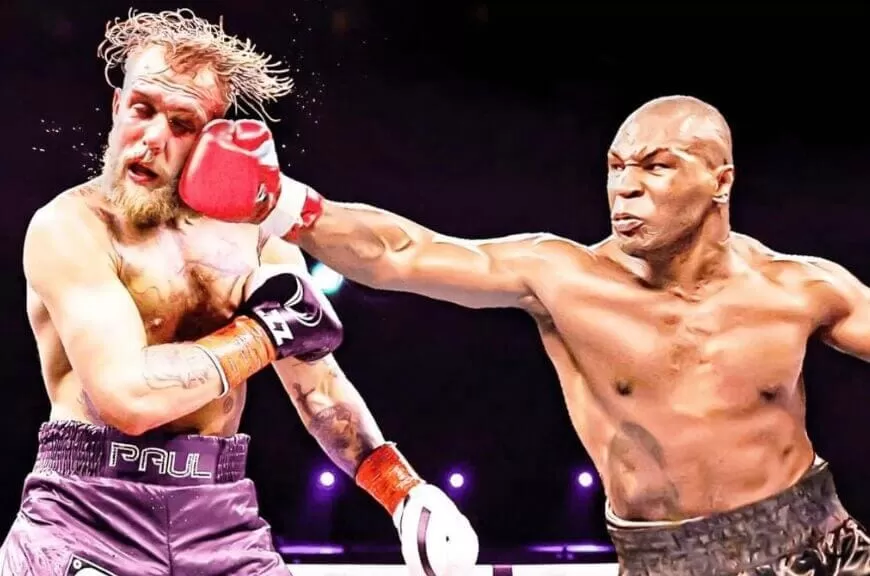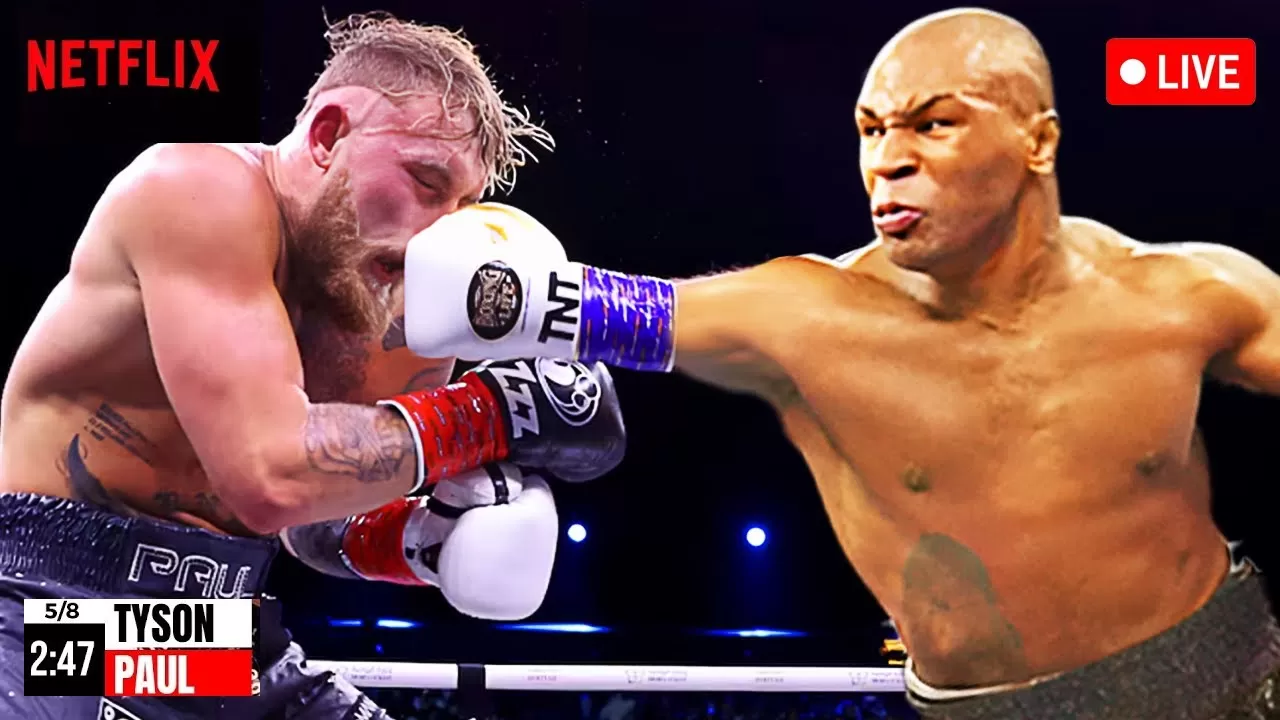In a fight that stunned the boxing world and captivated fans around the world, Mike Tyson, one of the sport’s most legendary figures, suffered an unexpected defeat at the hands of Jake Paul, the controversial YouTube sensation turned professional boxer. The unexpected second-round knockout left the audience reeling, sparking speculation about the future of Tyson’s enduring legacy and the broader implications for boxing itself.

The lead-up to the fight was as intense as the personalities involved. Tyson, a former heavyweight champion known for his ferocity and lightning-quick knockouts, seemed unfazed by the prospect of facing a younger, less experienced opponent. Many fans saw the fight as a potential return to glory for Tyson, a chance for him to show the same power and precision that defined his career. Paul, meanwhile, entered the ring with a different kind of momentum: his rise through social media, carefully selected fights and relentless self-promotion made him both a polarizing figure and an undeniable force in the boxing world.

The fight was not just anticipated as a physical contest, but as a symbol of a broader shift in sports culture. For Tyson, it was a continuation of his storied career, a testament to the timeless appeal of an athlete who once dominated the ring. For Paul, it was an opportunity to legitimize his status as a boxer, to step out of the shadow of his internet celebrity to potentially defeat one of the greatest boxers of all time.
When the bell rang for the first round, Tyson immediately took control, his punches sharp and his defense impeccable. The fans roared as he delivered several punishing punches, proving that age had not dulled his ferocity. Jake Paul, however, showed unexpected resilience, moving around the ring with a surprising level of focus and strategic positioning. He absorbed Tyson’s power but remained calm, avoiding the kind of knockout blows that had ended fights in Tyson’s heyday.

The second round was a turning point that no one could have predicted. Paul threw a decisive, perfectly timed right hook that knocked Tyson off balance. In an instant, the iconic fighter was on the ground, visibly dazed. The referee began the count as the arena watched in shock. Tyson struggled to his feet, but the power of Paul’s punch proved too much. As the referee reached the count of ten, the unthinkable became reality: Jake Paul had won the victory over Mike Tyson.
The reactions were mixed. Many Tyson fans expressed disbelief, while others expressed respect for Paul’s talent and strategy, acknowledging that he had, indeed, earned his victory. Still, the result raised pressing questions for Tyson and his place in the sport. Is this defeat the signal for the boxing icon to retire, allowing his legacy to remain intact? Or does it mark the beginning of a new era in boxing, where unconventional athletes like Paul can bridge the gap between entertainment and sport?
The media reaction reflected these contrasting views. Commentators noted that while Tyson’s record remains legendary, the defeat underscored the unforgiving nature of boxing. A young, hungry, agile, and precise opponent is a serious contender, regardless of his background. For Tyson, the fight highlighted the price that years of grueling fighting and a life in the spotlight had exacted.
For Jake Paul, the win is more than just another milestone in his career. It represents his arrival as a legitimate force in the sport, and he wasted no time expressing his pride in post-fight interviews. Once considered an underdog, Paul has consistently challenged that perception, training with professionals and dedicating himself to his sport. His rise reflects the changing landscape of modern sports, where social media and celebrity can play as big a role as traditional experience in building a successful career.

Critics have long debated whether Paul’s influence is positive or negative for boxing, but this win over Tyson could change those opinions. By demonstrating that he can compete with an established legend, Paul has bolstered his credibility and fueled the debate about how non-traditional athletes are reshaping the future of boxing.
While Tyson’s camp remains silent, the boxer’s legacy remains largely intact. Despite the loss, Tyson is celebrated as one of the greatest boxers of all time, an athlete whose raw power, talent and dedication redefined boxing during his reign. The loss, while unexpected, is unlikely to erase his accomplishments. But it does bring a sense of finality, perhaps signaling that his time in the ring is coming to an end.
For Paul, however, the path forward seems more open than ever. With one of the biggest names in the sport under his belt, he has set a precedent that could pave the way for other influencers and non-traditional athletes to step into the ring. The question remains whether he will continue to pursue more established fighters, further cementing his place in boxing, or whether he will turn to other ventures with his newfound respect for the sport.

Ultimately, this match between Mike Tyson and Jake Paul was more than just a fight: it was a cultural phenomenon, a reflection of the ever-changing dynamics of celebrity, talent, and legacy. The world of boxing, once dominated by traditional figures, is now expanding to include figures from all walks of life, proving that no era is immune to change. Tyson’s fans may mourn his loss, but his place in history remains secure. As for Jake Paul, this victory propelled him into a new stratosphere of influence, one that will likely keep him in the ring for years to come.
This fight, as symbolic as it is physical, could well mark the end of one iconic era and the beginning of another, an era in which sport and entertainment continue to merge, forever changing the face of boxing.